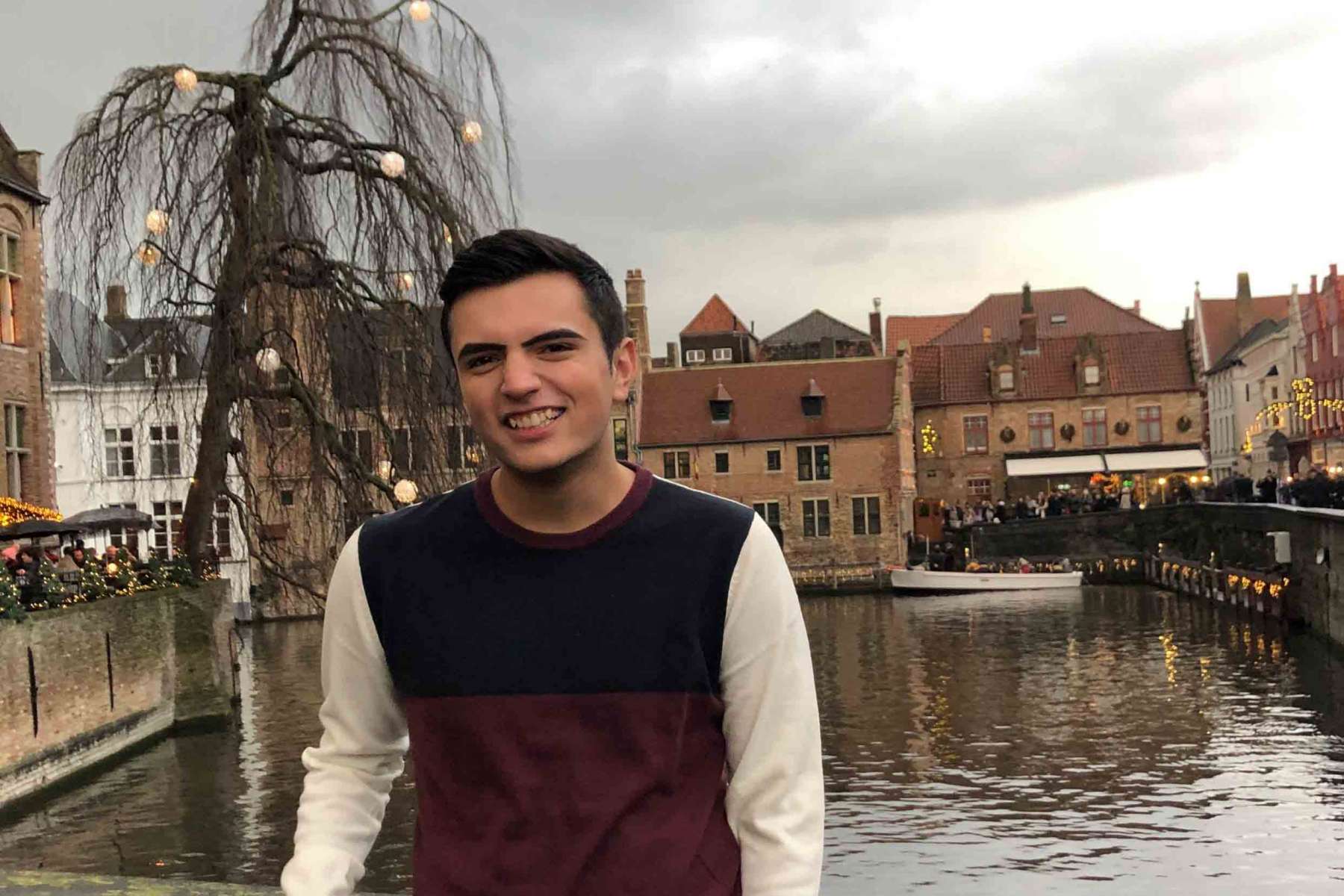From a BA to an MA at Johns Hopkins

As an undergraduate student at Johns Hopkins University, Austin had heard a lot about SAIS in his international relations courses and from other students who were also planning on attending the school. Austin had always been interested in applying to SAIS, so when the school began to offer direct admissions for JHU undergraduates, he felt like it was a sign for him to go for it. He knew that pursuing a master’s at SAIS would be a great way to broaden his career prospects, build on his undergraduate education, and expand his network. Austin was also drawn to SAIS due to its quantitative courses, as he wanted to strengthen his economics background and the International Economics concentration seemed like an excellent opportunity to do just that.
Before attending SAIS, Austin was finishing his undergraduate education at Johns Hopkins University in Baltimore, MD. He graduated from Hopkins with degrees in International Studies, Latin American Studies, and Spanish, before starting at SAIS later that same year. During his time in undergrad, Austin pursued internships that would strengthen his understanding of public policy and international affairs, especially in relation to the field of migration. Some of his undergraduate internships were with the U.S. House of Representatives, the International Rescue Committee, and local political campaigns in Baltimore.
After enrolling at SAIS, Austin really enjoyed his first year as a student. His favorite class so far has been Public Opinion as a Driver for Policymakers. The class focused on how public opinion influences public policy and the factors that impact public opinion itself. As someone who spent more time than he’d like to admit on websites like FiveThirtyEight, the Economist, and 270ToWin during the leadup to the 2020 U.S. presidential election, a class like this was a perfect fit for his interests. He analyzed polls, campaign funding, public opinion on specific issues, and other data points to make predictions on election case studies. One of these case studies was even the Democratic primary for the New York City Mayoral election that was held this year.
Although taking classes remotely was not an idea for Austin given that he missed the connections and discussions one gets in a real classroom setting, he did find the online format to work pretty well. It was very convenient to be able to watch (and re-watch) the recorded lectures for some of his intense economics courses from the comfort of his own home. In particular, he was very grateful for the school’s efforts to accommodate students that are participating remotely. For example, Austin was still able to intern remotely with UNHCR Colombia in its Bogotá office for his capstone, while being in Washington DC due to the pandemic.
After graduating from SAIS, Austin hopes to use his degree to combine his interest in public policy with his background in migration, Latin America, development, and economics, either in the private or public sectors.
As we celebrate Hispanic Heritage Month, Austin expressed that the recognition of his heritage during this special month is something that means a lot to him, particularly in that it sparks conversations that invite underrepresented communities to have a seat (and a voice) at the table. His father and his family came to the United States from Colombia during the 1980s, fleeing poverty and violence in the country. His father was undocumented when he first came to New York and met his mother, and he underwent trials and tribulations to support Austin’s family, for which he will always be grateful. Austin was actually the first person on his father’s side of the family to earn a college degree, and when he graduates from SAIS in 2022, he will be the first to earn a Master’s degree as well. Austin sees Hispanic Heritage Month as an opportunity to highlight Latin voices and stories that are typically not celebrated, like that of his family. Austin believes that Hispanic Heritage Month is about celebrating the pride you have in your culture, even if it has not always been celebrated by those around you. He grew up having to endure cruel comments from classmates about Hispanic stereotypes, about his last name, the food he ate, etc., but these only strengthened the pride he felt about being Latino. Hispanic Heritage Month is a way to celebrate the contributions Hispanics have made to society and it’s even a way for the Hispanic community to lift up their most underrepresented voices, like those of the undocumented, LGBTQ+, indigenous, and Afro-Latinos.

